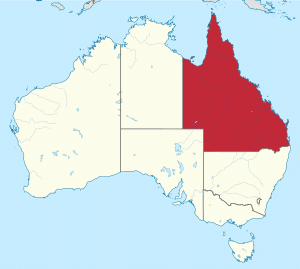FEBRUARY 24, 2014 VOLUME 21 NUMBER 8
News reached us this month of a November, 2013, probate court order in Australia admitting an unusual will to probate, and it made us wonder if we should anticipate a digital future for estate planning. An Australian probate decision would have to be pretty unusual to get noticed around the world, but this one qualifies. The judge in Brisbane determined that the decedent’s last will was valid — though it was only on his iPhone.
Karter Yu committed suicide in September of 2011. Shortly before his death he created a number of documents on his iPhone, most of which were apparently farewell letters. One, however, looked very much like a will. It began with “This is the last Will and Testament of Karter Yu,” and it contained all of the provisions that one would expect to see in a will. It named an executor (what we in Arizona would call a personal representative), it included his address, and it gave directions for the distribution of his property. In the space where one might expect to see a signature on a printed document, Mr. Yu had typed his name, added the date and listed his address again for identification.
Queensland probate law, like Arizona’s (and most U.S. states’ laws), is descended from English common law. The old common law approach was clear: a will, to be valid, must be signed by the testator (the legal term for a person making a will) and witnessed by two individuals — and it must clearly indicate that it is intended to dispose of property at death of the signer. There may be additional details required in individual cases, and there are sometimes a handful of exceptions, but those remain the basic rules for making a valid will in most jurisdictions operating under English common law principles.
In Queensland, however, there is a relatively new variation. A document that does not meet the formal will requirements may still be admitted as the decedent’s will if:
- It exists as a document — and that includes any computer file stored on disc, tape or otherwise, provided that it can be produced or reproduced (i.e.: printed, or copied, or presumably even e-mailed), and
- It states the testamentary intentions of the decedent, and
- There is sufficient evidence that the decedent intended the document to be his or her will.
Looking at Mr. Yu’s iPhone document, the probate judge in Brisbane had no trouble determining that all three conditions were met. The will was admitted to probate, and his nominated executor appointed to administer his estate. Re: Yu, November 6, 2013.
This result might seem surprising to an Arizona probate judge — or lawyer — but was not necessarily a major extension in Australia. Just a year earlier, in a somewhat similar case, a New South Wales probate judge had admitted a word processing document to probate in Yazbek v. Yazbek, June 1, 2012. The decedent’s parents (who would have taken his estate if he had no will) insisted that he must have printed and signed the will document, then destroyed it — effectively revoking it as his will. The probate court found otherwise, and the unprinted document was admitted as the decedent’s last will.
Is a similar trend likely to develop in Arizona? Not likely, or at least not any time soon. Arizona’s probate law still adheres to the old English requirement: a valid will must be on paper (well, we suppose it could be on another medium — but it would have to be printed out), signed by the testator and witnessed. One notable exception, the “holographic” will, need not be witnessed — but it must be in the handwriting of the testator.
There is, though, a larger trend toward liberalizing the requirements for validity of wills. The National Conference of Commissioners on Uniform State Laws (NCCUSL) has developed and promoted the Uniform Probate Code — in fact, Arizona was one of the first states to adopt the UPC, in 1973. Though the UPC has been adopted in only a handful of states, it has been tinkered with regularly; the general trend in that tinkering has been to make it easier to approve questioned documents. The current (2011) version of the UPC permits the probate court to admit a “document or writing” that doesn’t comply with the requirements of English common law if there is clear and convincing evidence that the decedent had wanted the document or writing to be a will, a revocation, an amendment or a revival of a previous will.
Arizona has updated much of its version of the Uniform Probate Code, but not this provision (which, if you’re curious, is section 5-203 of the 2011 UPC). A handful of states have adopted the current version. Would Mr. Yu’s “iWill” be admissible in those states? It’s hard to be certain, but probably not — not because the idea would be unimaginable but because it’s likely that the file on the iPhone would not be characterized as a “document or writing.” But as public thinking about computer and internet files continues to evolve, you might reasonably expect that to change.
What does this mean for someone who wants to create a will on his or her iPhone? Don’t try it. The only thing certain is that you will assure the beneficiaries of your estate a high legal bill for the proceedings to determine what it means. Print the thing out, sign it before witnesses, and have them sign it, too. Better yet, hire someone who knows how to make sure your will is valid — like a lawyer — to prepare the will and supervise its execution.
Of course if you’re an Android user, everything is different. Just kidding.




One Response
What a wonderful article! I appreciate your continued efforts to educate and elucidate.
Stan Lerner